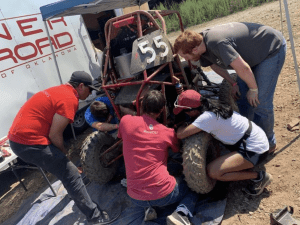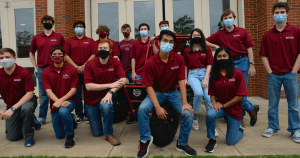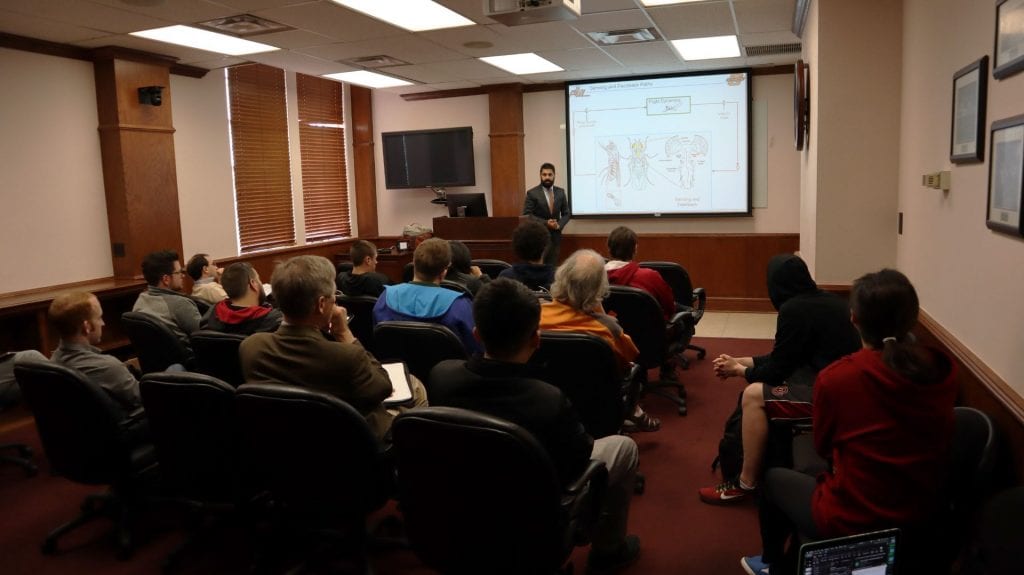Since 2010, Sooner Off-Road has engineered a vehicle at the University of Oklahoma. Every year they design, manufacture, and compete with a Baja SAE vehicle. Baja SAE consists of three competitions that simulate real-world engineering projects and their related challenges. Engineering students are given a mission to design and build a single-seat, all-terrain, sporting vehicle that performs well with speed, handling, ride, and ruggedness over rough terrain and off-road conditions. This year the team was led by co-captains Ben Basden and Advika Kamatar and their advisor Dr. Chris Dalton to their most successful year ever!
The Sooner Off-Road team was able to compete in three events this year. One in-person event and, because of Covid-19, one event that took place virtually. In these events the team competed against teams from across the US as well as universities from around the world.

In the virtual competition, the team received 9th place in design presentation, 3rd in the business presentation, and 1st place in the cost presentation. Each of those results is the best the Sooner Off-Road team has ever done in the respective events. Overall, they ended up in 7th place, which is a fantastic result for the team!
For the in-person competition, they achieved 12th in maneuverability, 9th in hill climb, 3rd in suspension, and 2nd in acceleration. Out of 45 teams who attempted the suspension course, they were one of only three teams to actually complete it. Amazingly, this is the best the Sooner Off-Road team has ever done in those events as well!
We are very proud of the Sooner Off-Road team and congratulate them for their tremendous success!
For more information about the Sooner Off-Road team, check out their Facebook page and follow them on Instagram.

